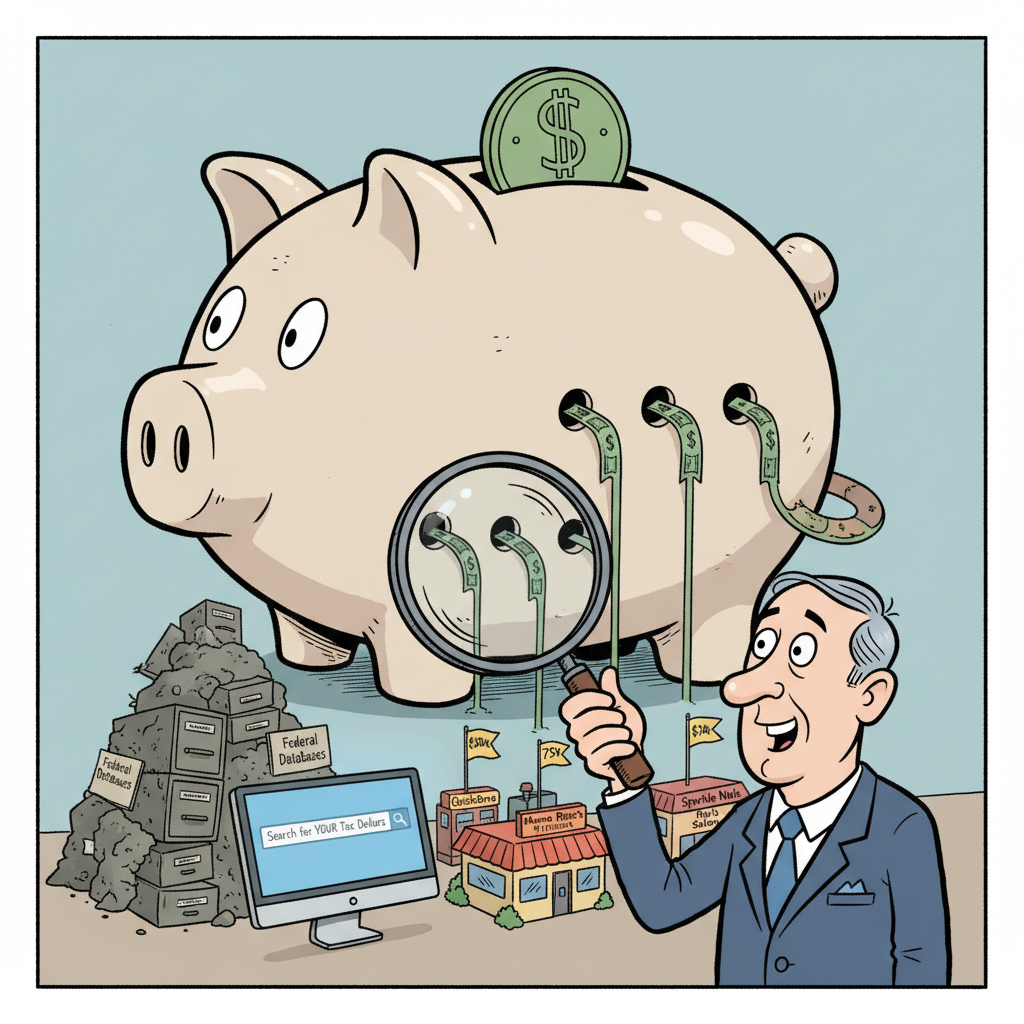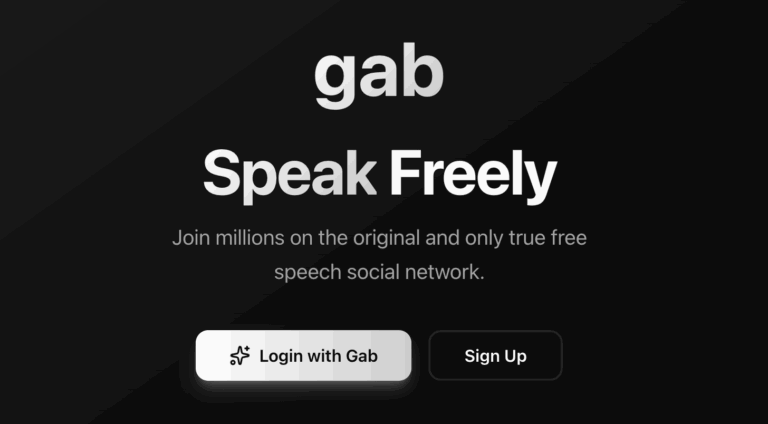The Rise of Sustainable Business Models
In the world of free social networks the user is the product rather than the customer. This is because these platforms generate revenue primarily through advertising and the users’ data is the currency that drives this model. Instead of simply paying for the privilege of getting access to your attention advertisers also demand that these platforms silence you from saying anything they don’t like or they will threaten to pull their ad dollars.
They do this because they themselves are pressured by activist groups, primarily the Jewish activist group the ADL, for running ads next to speech the ADL doesn’t like. By the nature of this relationship the ADL has de facto control over the social networks and thus they also control free speech online. The entire business model is toxic from top to bottom and it’s time for it to end if you want free speech to exist.
When a user signs up for a free social network, they are asked to provide personal information such as their name, email address, and other demographic data. This information is then used to build a profile of the user, which can be used to target them with relevant ads. Every click, website, photo, like, comment, share, and message is tracked. The more information a user provides, the more valuable their profile becomes to advertisers, who are willing to pay for access to this data.
With this model the user is the product being sold to advertisers, rather than the customer being served by the platform. The platform’s goal is to maximize the value of each user by collecting as much data as possible, which can then be used to target them with increasingly relevant ads.
As a result, free social networks prioritize the needs of advertisers over those of their actual users. They also collect and share user data with third-party partners without the user’s knowledge or consent, or they may use intrusive tracking methods to gather even more information about their users.
In contrast, subscription-based social networks like Gab offer an alternative model where the user is the customer, rather than the product. By paying a fee to access parts of the platform, users can enjoy a more private and secure online experience, without the need to share their personal data with advertisers. This shift in focus from monetizing user data to serving the needs of paying customers can create a more equitable relationship between the platform and its users.
The advertising market, once seen as a savior for these platforms, has continued on a downward trend over the past year. With the rise of AI, the competition for advertising dollars has become even more fierce. This has led to a situation where social media platforms and media companies are struggling to find ways to create sustainable business models that can support their operations.
Google and Facebook more or less have a duopoly on online advertising precisely because of the vast amounts of data they have collected and continue to collect on their users. Media companies like VICE, Buzzfeed, and many others simply cannot compete for ad dollars and are being forced to shut down or layoff a significant portion of their staff. Similarly, alternative platforms like Gab, Rumble, Truth Social, and others can’t compete for ad dollars in any meaningful way without compromising their core values.
Gab, a social media platform known for its commitment to free speech, has been at the forefront of this challenge since 2016. Gab was the first to successfully implement a subscription-based model, GabPRO, that allowed users to enjoy an ad-free experience while supporting the platform’s growth.
Today Gab is taking a radical move forward with this concept. Starting now in order to upload media files on the platform users will need to be a GabPRO subscriber, donor, or verified account. This shift reflects the reality that advertising is no longer enough to subsidize the costs of operating a social media platform.
We simply can’t afford to host and endless stream of media files being uploaded from free users anymore and unless we do something now Gab Social will never have a sustainable business. Free users will still be able to share text, links, polls, and engage in other ways, but media uploads are by far the largest expense on our infrastructure and they will be reserved for the people who help us pay to keep that infrastructure online.
This sounds like a drastic measure and it is. Far too many people assume that Gab and other alternative platforms have the same business models as big tech platforms. We do not. You can either have free speech or you can have a censored social network that offers all features for free. You cannot have both. So you must choose which you prefer to use. The platform that dictates what you can say and see that allows you to use every feature they have for free or the platform that allows you to say whatever you want and distribute that message to everyone, but has a small fee for some costly features. The choice is yours.
Digital ad spending in the US saw its slowest growth rate in over a decade in 2023.
The industry faced several challenges, including a general economic downturn that led to more conservative budgeting among marketers. This has led to a situation where advertising is no longer a viable solution for funding social media platforms, especially not social media platforms with free speech as a core ethos where advertisers are hesitant to spend money on at all.
Elon Musk is learning this lesson as well. After his takeover of Twitter he has signaled that he is pivoting the platform towards a subscription and financial services business model and away from digital advertising as its main business. This move reflects the growing understanding that advertising alone cannot sustain the operations of a social media platform that wants to uphold free speech. If you allow advertisers to dictate the policies of your platform because the ADL is hounding them it’s no longer your platform, it’s theirs. That’s unacceptable.

Everyone can see this plainly with how things have unfolded at X over the past year. The ADL whines and complains, targets X’s advertisers, X’s ad revenue tanks, and Elon is forced to go on holocaust museum apology tours kissing the ring of the ADL and censoring dissidents again in order to get back his advertisers. That’s not something you’re ever going to see Gab doing. I’d rather have the Gab fail than grovel to those evil and wicked antichrist people to survive.
The Era of Free Money is Over
Silicon Valley companies have long enjoyed a period of unprecedented growth and success, thanks in large part to the Federal Reserve’s easy money policies. Low interest rates and quantitative easing have enabled these companies to borrow money at extremely low rates, allowing them to expand rapidly and push into new markets.
However, this period of free-flowing money is over. The Federal Reserve has tightened monetary policy, raising interest rates and reducing the amount of money it is pumping into the economy. This shift is already having significant consequences for Silicon Valley companies, which have become reliant on cheap money to fuel their growth. It has reached a point where their pain is now trickling down to the end user.
Couple this change with the rise of AI and a flood of bots swarming into social networks and you have a recipe for disaster. Over the past few years X, Facebook, and Telegram have all followed Gab’s lead by offering a subscription service. Google, Microsoft and others are all also charging a subscription service for the AI products on day one. This trend is going to continue. You should no longer expect consumer software services to offer a free lunch on unlimited hosting and distribution. Those days are gone.
The future of consumer software lies in sustainable business models that prioritize user experience. By charging users for premium features and services, platforms can ensure that their operations are funded without compromising their commitment to their values at the behest of advertisers and Jewish activists.
The Balkanization of Social Networks Continues
The rise of niche or boutique social networking communities that unite around shared values has been a significant trend in recent years. As mainstream platforms like Facebook and YouTube have increasingly become monopolized by big tech companies, many users have sought out alternatives that cater to their specific interests and values.
These niche social networking communities offer a unique value proposition to their users, providing them with a sense of belonging and a platform to express their views and connect with like-minded individuals. They are often characterized by a strong sense of community and a shared commitment to certain ideals or values, such as free speech, privacy, or a particular political or social cause.
Niche social networking communities are increasingly being supported by subscription-based services as an alternative to the ad-driven revenue models of mainstream platforms. This shift is driven by the desire of users to have more control over their online experiences and to support the platforms that align with their values.
Subscription-based services offer several benefits to these niche platforms. First, they provide a predictable and sustainable revenue stream, allowing the platform to invest in growth and development without relying on the whims of advertisers. Second, they create a direct relationship between the platform and its users, fostering a sense of community and shared purpose.
The community of people who use these niche platforms is an essential part of their success. By supporting the platform through subscriptions or other forms of engagement, users demonstrate their commitment to the platform’s values and contribute to its growth and success. This, in turn, creates a virtuous cycle where the platform can continue to invest in features and content that appeal to its user base, further strengthening the sense of community and purpose. By supporting these platforms through subscription-based services and active engagement, the community of users plays a crucial role in their success and growth.
A subscription-based model can also help eliminate the vast majority of bots, scammers, spammers, and trolls that plague social media platforms. With AI technology becoming more advanced, the number of bots is only expected to increase. By charging users for access to certain features, platforms can ensure that only genuine users with skin in the game are contributing.
Many people are willing to shell out $5 each day for a coffee, while they hesitate to spend just $10 a month to support a website they spend hours on daily. People tend to view a daily coffee as a small luxury or necessity that gives them energy and pleasure. On the other hand, they might not perceive the same immediate value in backing a website, even though it offers them hours of entertainment, information, or social interaction. People may not realize the true cost of running a website, the resources and effort required to maintain the content, and the ongoing expenses associated with servers, development, and staff. They might not understand that their support is crucial to keep the website running smoothly.
If you want places like Gab to exist and not have the entire internet dominated by Facebook and Google while the conversation is dictated by Fortune 500 advertisers and the ADL then this must change. The era of free lunch on the internet is over. The advertising market is in a downturn, platform owners are no longer bending to the whims and demands of advertisers and activists, and social media platforms must find new ways to create sustainable business models. Gab is leading the way by pivoting towards pure subscription-based models that prioritizes the user experience and protecting free speech. This is the future of all consumer software models, and it’s inevitable that other platforms will continue to follow Gab’s lead.
If you support the work Gab is doing please upgrade to GabPRO and help us continue to do so.
Andrew Torba
CEO, Gab.com
Jesus is King





